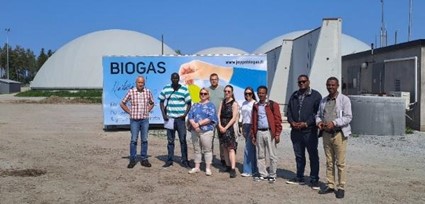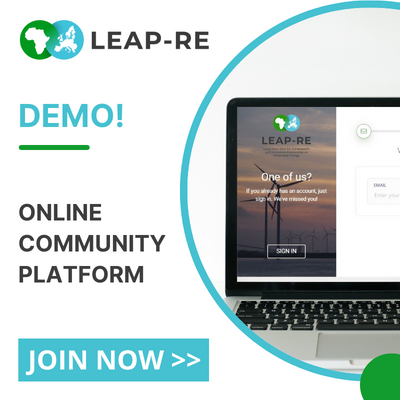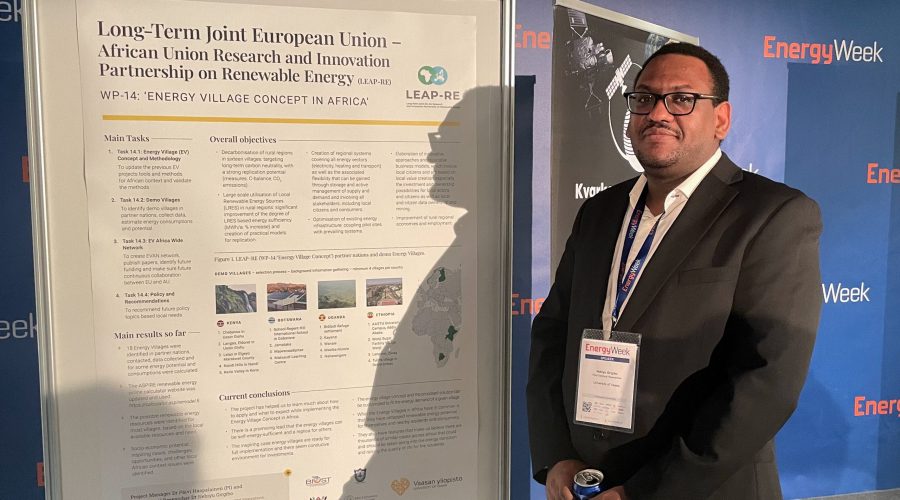One of the aims of the Energy Village concept in the LEAP-RE Project Portfolio is to map out different resources of renewable energy found within a region and to demonstrate that a village can be energy self-sufficient and produce excess energy at a commercial scale. After having the project progress workshop at the University of Vaasa, the project partners from the University of Vaasa and Addis Ababa Science and Technology University (AASTU) from Ethiopia visited Jepua biogas company in Finland to see a plant set up based on the energy village concept of self-sufficiency. As the saying goes, seeing is believing!
According to the managing director Kurt Stenvall, the innovative idea to build a biogas power plant came up in 2003 but was not feasible back then. A further study conducted by University of Vaasa in 2008-2009 mapped out the potential renewable energy resources within regions and showed that the Jepua region had positive net energy utilising feed material from slightly bigger geographical areas than the earlier studies. Jepua biogas was commissioned in 2013 and its current capacity of over 110 000 tonnes per year and generation of 800 nm3/hr of concentrated biogas. The biogas is used for heating in a nearby factory, potato processing plant and villages with farms. In addition, 10% of the produced gas is supplied to nearby gas stations.
While the biogas process is generally known, there were several learning points from the visit. The success of a project of such kind requires ready gas off-takers in equal measure as the availability of raw material. Equally important is the support from the government and embrace from the local community. A home-take message to the visitors in developing such a mega project is the requirement of continuously improved project implementation planning from the private sector (Investor) side and a high level of commitment and support of the government. It is also clearly observed that awareness campaigns to convince the community and stakeholders of the region make the project to be owned by the public as an important asset. The value chain created from the collection of raw materials to product distribution and waste utilization is exemplary for the AASTU team to think about having such energy village practical applications in Ethiopia.
The team from AASTU has also had several small group discussions with key scientists and researchers at the University of Vaasa on future collaboration between the two universities. The team has also visited different laboratories such as labs at VEBIC and Techno Bothnia of University of Vaasa.
More about the Energy Village project: https://www.leap-re.eu/energy-village/




